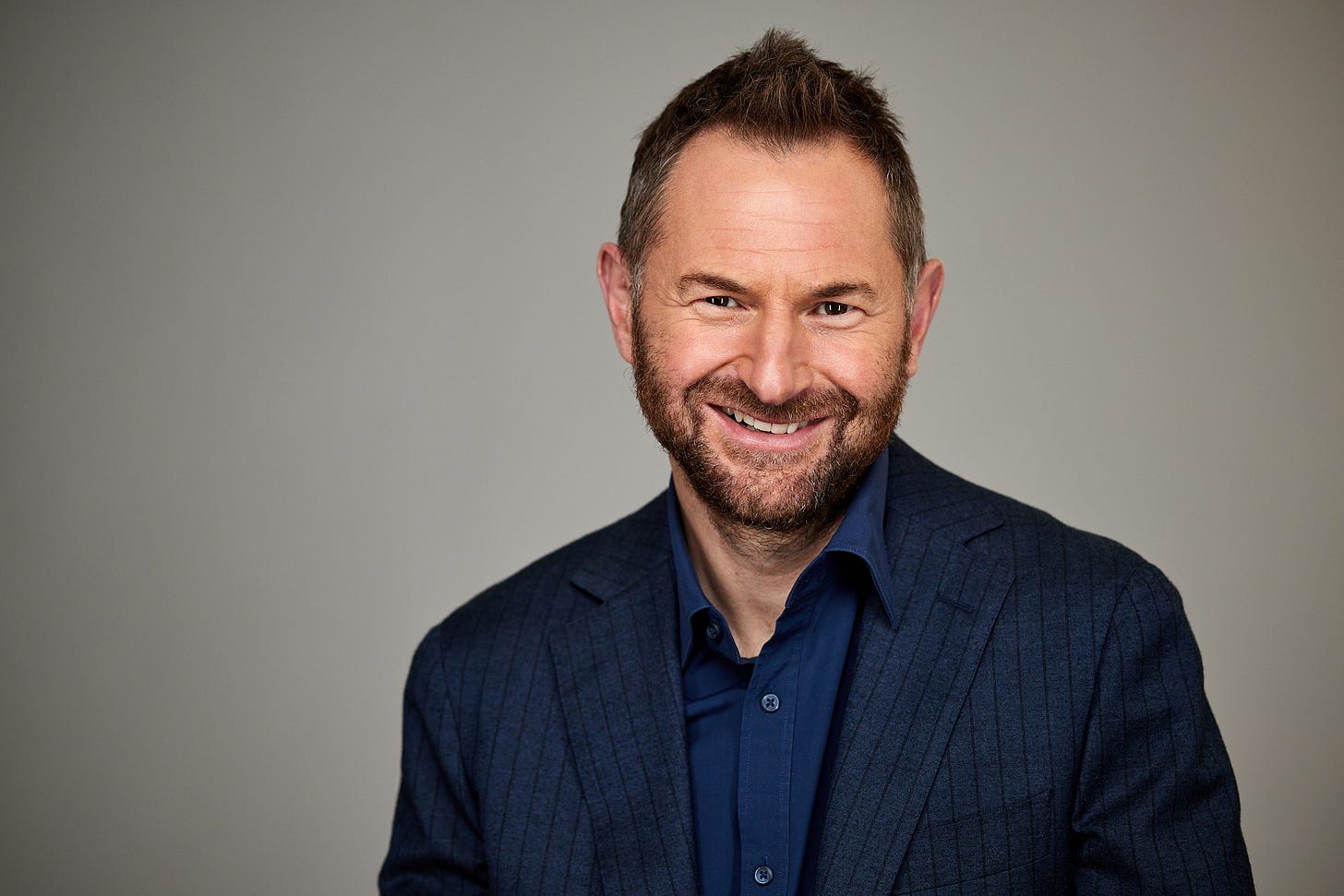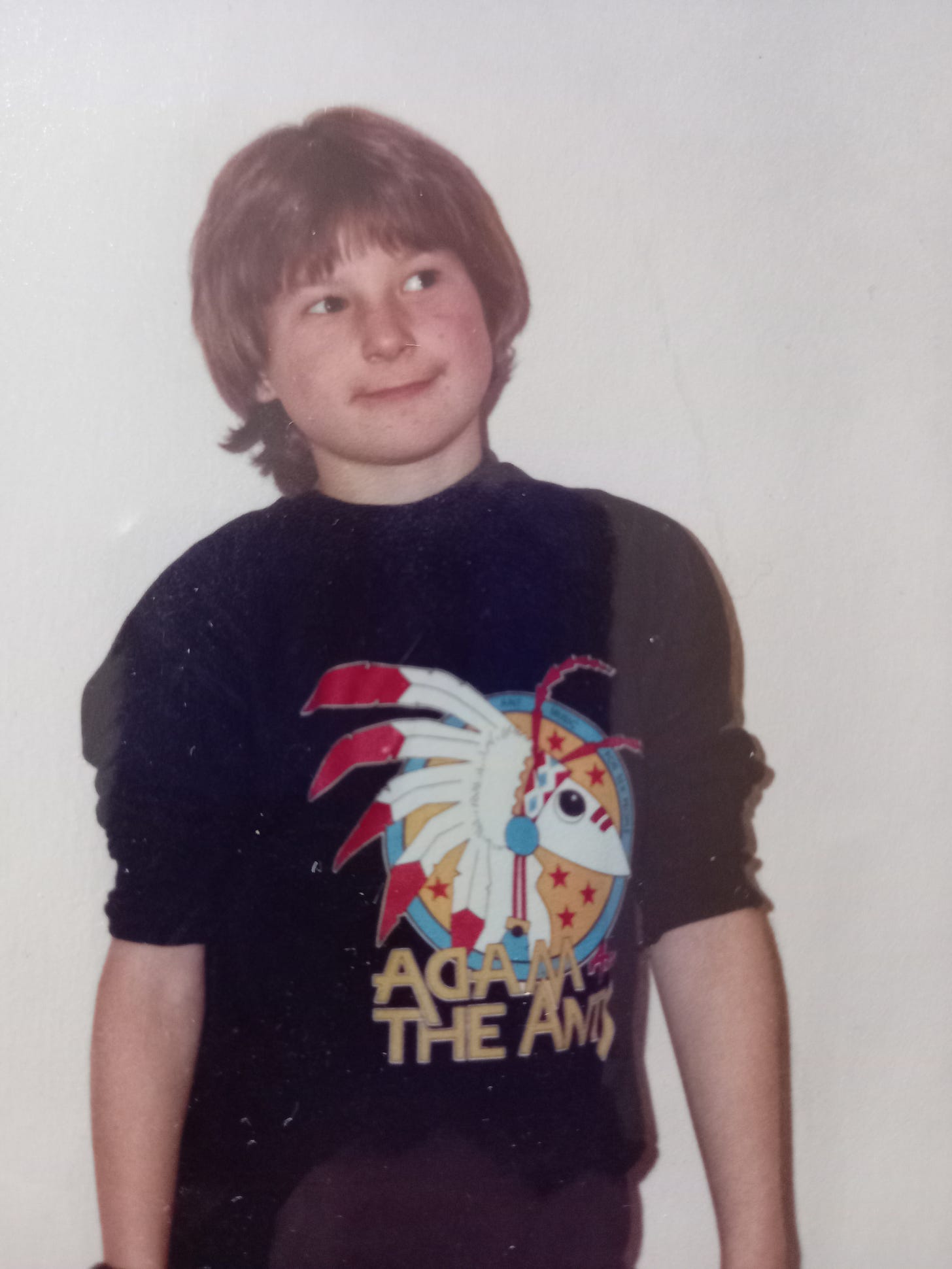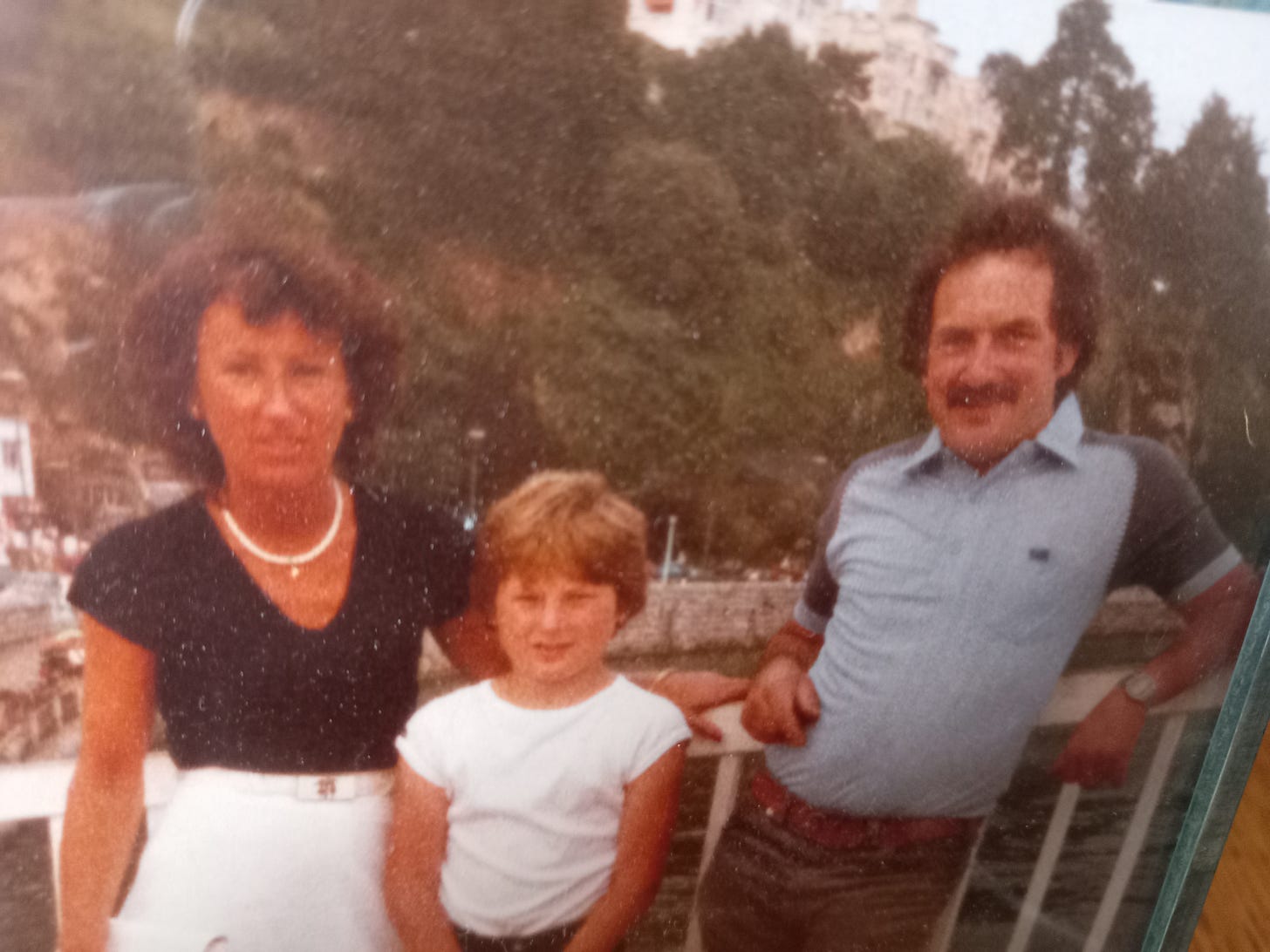Q&A: Screenwriter Danny Brocklehurst Lives in a Make-Believe World
The British TV writer discusses his craft, breaking into the biz by getting Paul Abbot drunk, and the mind-boggling success of his Netflix adaptation of Harlan Coben's 'Fool Me Once'
There is a small club of screenwriters who began their careers as arts and entertainment journalists, of which I am a proud member - as is Danny Brocklehurst, the British creator of such wonderful television series as "Exile” (2011; co-created with Paul Abbot), “Ordinary Lies” (2015), and “Brassic” (2019; co-created with Joe Gilgun). More recently, he’s been part of the creative team that’s brought several Harlan Coben thrillers to the small screen — including this year’s “Fool Me Once”, which currently ranks as the sixth most successful Netflix series of all time. This is all a far cry from the post-interview drinks with Abbot, the creator of “Shameless”, that set all this in motion back at the start of the millennium.
Danny comes to 5AM StoryTalk by way of “Line of Duty” creator Jed Mercurio, who joined me for one of my artist-on-artist conversations earlier this year. I was so taken by my chat with him, in particular his working-class perspective on British TV (I grew up working-class, too, albeit on the other side of the Atlantic), I asked him if he could suggest some similarly minded artists for this interview series. Danny’s was the first name he brought up, and it elicited an emphatic yes from me. I’d recently become enamored with “Ten Pound Poms”, a series the screenwriter created about British citizens who migrated to Australia after WWII; but I’m similarly a great admirer of “Brassic”, now in its sixth season, which explores life in the North of England where Danny hails from.
You’re about to read a conversation that goes deep into craft, the absurdities of the film/TV business, and class in the arts. For artists working in all mediums, I encourage you to pay special attention to Danny’s commitment to authentically representing the people he grew up around, as well as how he continuously pushes himself out of his comfort zone — especially with the Coben thrillers that, by his own accounting, did not come naturally to him. We often grow as storytellers when we embrace discomfort rather than run from it.
COLE HADDON: Danny, you’re incredibly prolific. That sort of prolificity requires tremendous discipline, and that sort of discipline typically comes at the expense of other aspects of one’s life. How successful have you been at balancing work and, well, everything else?
DANNY BROCKLEHURST: I learned a while ago that writing is all about discipline. You have to get up every day and live a pretty predictable, repetitive life if you are going to get the words down. Or, at least that’s how I do it. I don’t work late into the night. I try and avoid crazy weekend working - although sometimes that is unavoidable. I stick to kind of office hours. I take my youngest kid to school in a morning, I cook dinner of an evening. I spend time with them. You hear about writers who keep crazy hours – I hear one writer writes on Christmas day! – but I think it is unnecessary. Actually, I think it’s insane. Because you have to live some life so you have things to write about. Kay Mellor used to say writers spend too much time writing and not enough time living a life that gives them something to write about.
But you do have to be disciplined and treat the job like a proper job. I think too many writers treat it like a hobby.
CH: I couldn’t agree more with your crazy hours observation. I recall something Nora Ephron said on the subject, about young writers who show up in Hollywood, in particular, with one story about coming of age at, like, sixteen. They get their big break, then discover they have absolutely nothing else to talk about. I expect that’s why Hemingway was so vociferous about living life being the key to great writing, though he probably lived too much. But maybe that’s also why some people can treat writing like a hobby – or a privilege – something they can do when it sounds fun and convenient. I imagine that’s necessary when your life experiences are so shallow.
Were you always so regimented about when you write, or did that happen to you after you had kids?
DB: I’ve definitely become more regimented since I’ve had kids. When I worked on “Shameless”, I remember my hours were crazy. Mind you, that whole show was crazy, so we had to write whenever to fit in with the madness that was swirling around us.
These days, I set myself things I want to achieve by a certain time. Like, this many pages by the end of the day, or to have reached this point by the end of the week. Something realistic, but doable, and I find when you do that, you generally go past your target and achieve more.
CH: What about the craft – or the business – has failed to live up to the romantic idea of it you held when, perhaps, you first thought about becoming a screenwriter?
DB: Last week, I spent several hours, on and off, discussing how much lactation was acceptable on a breastfeeding woman’s shirt. I don’t think I ever imagined I’d have to waste my time on that kind of detail.
CH: [Laughs] Perfect, just perfect.
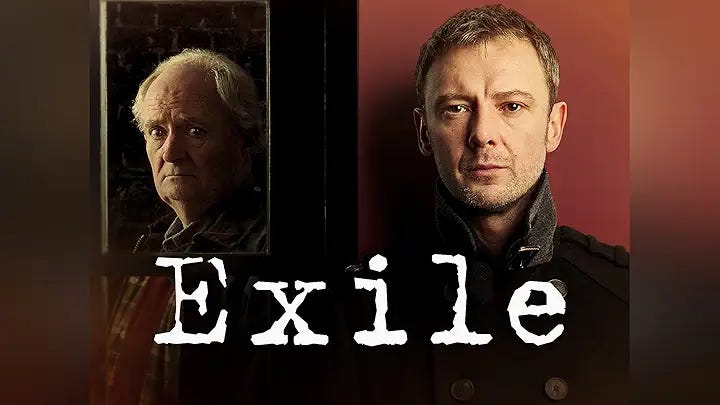
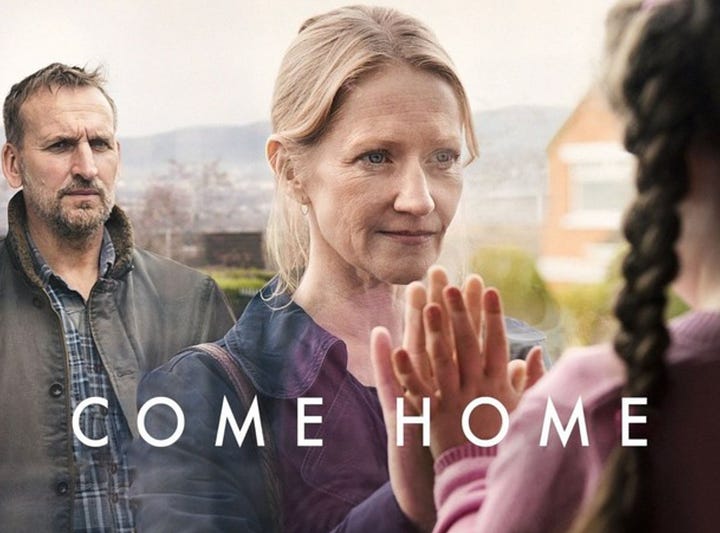
CH (cont’d): Let’s talk about the decision to become a screenwriter. I was a freelance journalist myself when I sold my first script, which is the same route you took. But my intention was always to work in film/TV and write novels. Was the same true for you?
DB: So, I was fortunate to fall into journalism through doing some work experience at a magazine and I found I was good at it and managed to keep getting work. I was in my twenties, I was writing about cool stuff – like film and comedy and theatre – and I was just about making a living. But I really wanted to work in TV and film. I’m from a very working-class background and never imagined I’d end up in journalism, let alone TV, so it was still a real stretch to think I could break in. I kept writing spec scripts and sending them off and did a few plays on small Manchester stages, but it was kind of going nowhere. Until I got a bit of luck. I went to interview the screenwriter Paul Abbott as a journalism assignment for City Life magazine and Paul, a man that likes a drink, offered me a glass of wine after the chat and we ended up talking about writing and the booze emboldened me to ask him to read a script I’d written. I’m sure he thought, “Oh fuck…now I’ve got to read this asshole’s script!”
CH: [Laughs] No doubt.
DB: I’m not sure he ever did read it, but what he did do was pass it to Nicola Shindler at Red Productions and they did read it. They offered me the chance to pitch for “Clocking Off”, a BAFTA-winning show that was going into season two. So, I set about writing three stories for that series and, to my amazement, they bought two of them. Nicola has become my longest-standing working relationship. We have been making shows together for nearly twenty-five years now. Lesson: try and get pissed with a big-time screenwriter!
CH: [Laughs] I consciously tried this approach with filmmakers myself, though without booze - which was probably my big mistake. Or perhaps a lack of appropriate charm. I should point out to readers that Paul did end up hiring you a few years later when he created “Shameless” – I’m sure we’ll come back to this later.
I found writing about the arts, even transcribing interviews, valuable training as a screenwriter. I haven’t been able to ask many other people about this, as there aren’t exactly a lot of us. Have you found the same to be true for yourself?
DB: One hundred percent. I spent a lot of time watching theater and writing about theater, also film. And you learn so much. I was obsessed with TV anyway, so I had already immersed myself in TV, but I think writing about the arts is incredibly valuable. That said, I reviewed so much theater back then that I can barely go nowadays. I love great theater, but let’s face it, most of it is mediocre. And always too long. I’d love to do another play – not that anyone is asking! – but if I did, it would be fast-moving, unpretentious, and all done and dusted in two hours including an interval.
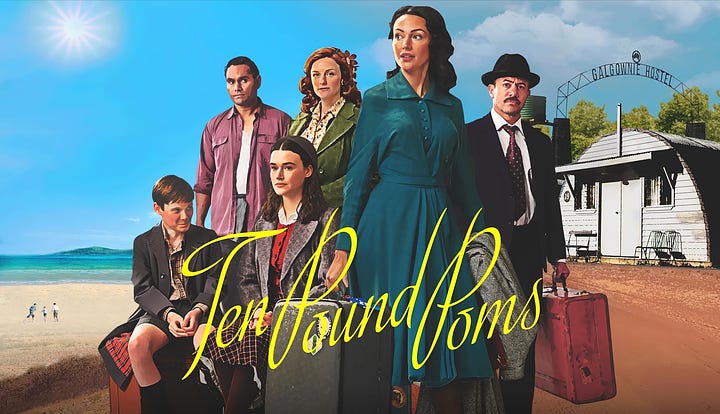
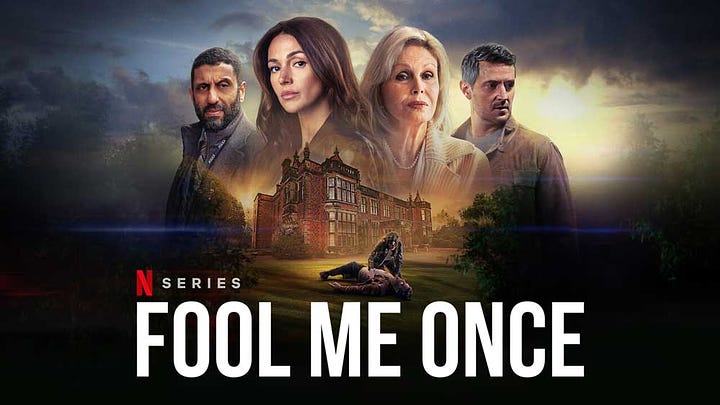
CH: What does that mean to you, “unpretentious”? I find it’s a very subjective term – especially when geography is taken into consideration – but with artists, it can reveal a lot about how they see their own art and others’.
DB: Oh, for me, it’s about presenting work that’s accessible. It can be intelligent and complicated, but it mustn’t be excluding. And so much theater seems to almost revel in its presentation of itself as something more important than it is. The dialogue and form are opaque and distancing. I watch some shows and just think, “I cannot imagine who would want to watch this, let alone enjoy it.” I’m not saying everything must have broad appeal, but I can see why modern theater struggles to attract audiences, especially younger audiences. They seem to operate in their own exclusive, and yes, sometimes pretentious, world. They would never admit this, of course, but there is a problem with theater. It fails to attract the working class, generally speaking. It fails to attract the under-25s, generally speaking. It fails to attract diverse audiences, generally speaking.
And let’s be honest here, that’s because they aren’t offering them anything they feel they want to see. Or they aren’t reaching out to those groups effectively in the first place. Am I being unfair? What’s your experience with the theater?
CH: It’s…mixed. I love going to the theater – I occasionally dabble in playwriting, too – but I fear its greatest problem is how it’s largely priced the everyman out of the experience. That is, unless that audience member is so passionate about theater, they’re willing to research and attend any number of smaller, less flashy productions where more interesting, diverse things are happening. But that monolithic entity – theater? Personally, I don’t mind that some of it might be inaccessible to this or that group. I appreciate the idea that not every piece of art is for everyone, but inevitability the cost of these productions necessitates what seems to me a cultural consequence similar to what’s happened to Hollywood and, I fear, is happening in the U.K. Bigger always means less risk, great, sure, but bigger always means bigger, well-established names from the right kind of background – with very specific, usually exclusionary narrative interests – that aren’t going to get young people, people of color, working-class folks, anyone other than a largely homogenous type to buy tickets. The world can feel very small to me that way.
DB: Absolutely. And regional theaters are closing or struggling and everyone is wringing their hands about why. Well, perhaps it’s because they aren’t connecting with their local communities and offering stuff they want to watch. You can’t keep putting on The Importance of Being Earnest and Peer Gynt and expect to bring in new audiences. If theater just keeps offering up “the classics” and doesn’t develop exciting new stories that are pertinent to now, then it becomes irrelevant.
CH: A question I haven’t asked many screenwriters yet – probably because it can sound like I’m fishing for trauma porn here – but I’m curious, what’s your greatest failure as a storyteller and what did you learn from it? You’re so prolific, as I’ve said, so I have to imagine one or two projects disappointed or just completely fell apart in their execution for you. So many things factor into whether a series works at all.
DB: Failure teaches us as much as success, for sure. And believe me, I’ve had plenty of failures over the years, from things that didn’t get made – a bag full of those – to things that did get made and turned out less good than hoped. I had a project recently which got embroiled in legal issues because it was based on a real person and, despite being told we had all the life rights, etcetera sorted, guess what?
CH: Shit.
DB: We didn’t have the life rights, etcetera, sorted and it all got so painful and complicated and creatively bizarre that I ended up walking away. It was keeping me awake at night. Life’s too fucking short.
I think the most destructive experience I ever had was when I was developing a show with an American network and I was made to jump through so many hoops and change the show so many times, that I simply didn’t know what to do anymore. I was genuinely broken by the process, to the point where I was delighted when it didn’t get made. I woke up to the news from L.A. by email, “Sorry, it’s a pass,” and I was fucking thrilled. I felt free and was skipping around as light as air.
CH: It’s madness that what we do can push us to such a point. I cried when my first TV series was greenlit and celebrated when it got canceled.
DB: I know, tell that to new screenwriters and they’ll think you are crazy. But sometimes, life is too short for dealing with this shit.
When it comes to shows that got made and weren’t as good as hoped, there are so many variables. Sometimes I didn’t do a good enough job on the script and sometimes someone else has messed it up, maybe a director or bad casting. I have been very lucky with directors, and most of them have improved my work, but occasionally you see the results and are like, “Huh, could have been great, but alas, it’s average.”
As a side note, I went to a talk by a very big U.K. writer once, and he was asked this very question and claimed to not have had any failures — which struck me as an incredibly arrogant and unhelpful thing to say. You can’t be in this business without some failure. But you have to grow resilience and learn from it. Sometimes, as they say, the best opportunities come disguised as enormous disasters.
CH: That also strikes me as an incredibly privileged thing to say. The only people I’ve ever known who seem to have only had “successes” also had luxuries – like financial security and access that often provides – which meant better doors to step through and fewer compromises that might put them at risk of failure.
DB: Totally agree. I think my background has made me afraid of failure and made me fight for every success because at some level I’ll always be that young working-class lad that didn’t know how to break into this business. It stays with you.
CH: You’ve called “Our Friends in the North” from 1996 your favorite drama of all time. It’s been a good twenty years since I watched it, but I remember it as a stunning piece of television that explores the lives of four friends in Newcastle over the course of some three decades. You didn’t grow up in Newcastle, but you grew up in the North of the U.K. What is it about this series that made such an impact on you and I wonder how you would describe its influence on your work over the years?
DB: I grew up in a little town called Hyde, in Greater Manchester, which is famous for not one, not two, but three serial killers. Doctor Shipman and the Moors Murderers.
CH: [Laughs] Well, that’s not something you put on tourism sites.
DB: I grew up in a very working-class home, dad worked in a factory, mum was a secretary –as they used to call them – to a solicitor. We didn’t have bags of cash, but we weren’t on the poverty line either. But growing up in the North of England in the 1980s was hard. [Margaret] Thatcher was destroying Northern cities. Unemployment was high. Crime was high. Social unrest was high. There was a feeling that our part of the country was getting left behind while people in the South were – seemingly – thriving.
“Our Friends in the North” manages to chart a group of friends from Newcastle, across four decades, from the ’60s to the ’90s, and deals with a raft of social issues from that period - but it always does so by putting character first. We fall in love with the characters played by Chris Eccleston, Daniel Craig, Gina McGee, and Mark Strong. We love them as flawed people. We love them as friends. And the format is so extraordinary. It starts in, I think, 1963, then jumps forward a few years and we meet them again, years later, then the next episode jumps forward again, over and over…so we are only meeting the friends every few years and we have to fill in the gaps that have happened in their lives in the meantime. It is a bold piece of writing. I can’t think of another TV series that has such amazing ambition and says so much about life at the end of that century. It’s perfect.
CH: How startling was it for you at the time to, in so many ways, see yourself or your parents on the screen? I think what a lot of people who haven’t lived in the U.K. don’t fully understand is both its class system, but also the historical disregard for the North from London and, thus, the commissioning choices of networks like the BBC.




